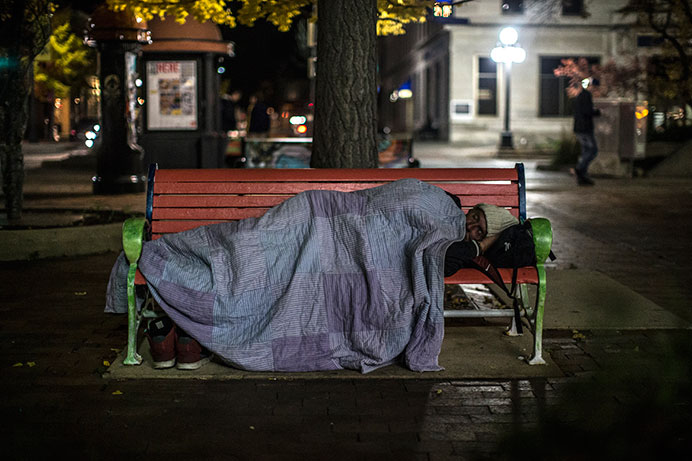In the United States, there are roughly 553,742 people surviving on the streets, living in their cars, residing in one of the 5 million homeless shelters scattered throughout the country, or finding refuge in subsidized transitional housing. These numbers were discovered on a single-night survey in January 2017, when state and local planning agencies rallied to gather the names and stories of those living in homelessness.
There are millions of homeless shelters crowding cities and states, offering tangible help to those who are in dire need of tangible goods — but it is clear most of the temporary, physical needs are not lasting. Where policy offers substantial solutions to funding organizations dedicated to reaching the homeless community and building more shelters, there is more to be done in order to have a lasting impact on those individuals who are living in homelessness. It begins with people, communities cultivating relationships with the homeless community as they empower people beyond homelessness and into improved quality of life.
What the homeless community needs, more than anything, is opportunity. Because where there is opportunity, there is room for ability, development, and growth. In many places across the United States, this step toward action precedes the power of change — and change is ignited among community, where hope is expended by humans rallying around humans in need.
RELATED: Panel discusses health care for homeless
In light of the astounding number of people living in homelessness, the U.S. Department of Housing and Urban Development and local communities have, according to the HUD website, “launched a more intense effort to more accurately account for this important, difficult-to-count population.” Along with a more intentional way of accounting for the population of those living in homelessness, local communities have come alongside the homeless community in more sustainable, empowering ways. This has shown to be true in Iowa City, where a small homeless shelter is creating an immense impact on the community it is reaching.
The roots of homelessness extend far deeper and are much more tangled than what the surface often portrays. For most, homelessness is a silent cry of desperate need amid a system that pays little to no attention to those trapped in the confining cycle of life on the streets. There are countless organizations rallying to offer water bottles, socks, warm winter coats, and many more physical needs. Though these items are good and crucial to survival — especially in a place where winter ravages nearly half of the year — they alone are not going to pull individuals out of homelessness.
RELATED: Former Hawkeye offers new approach to homelessness
The numbers mentioned above are profound, unfair, and call for action. And the state of Iowa is doing just that — acting to prevent the overwhelming number of people who are homeless in Iowa from growing, while reducing the current number by offering accurate reports on current homelessness to the HUD each year. In these reports are the number of people identified as homeless, the potential causes of homelessness during that year, and in what ways local agencies and organizations are acting alongside individuals who are homeless.
Iowa City has an incredibly empowering and encouraging homeless shelter that is local to the area. Shelter House has been home to hundreds without homes. In the last year, 592 people used the drop-in services it offers — laundry, showers, clothing, and even phone use. There were 874 men, women, and children who found shelter in Shelter House. And 58 percent of adults were employed by the time they left Shelter House.
Shelter House takes the potential people have and offers trajectory. Their mission and vision is to “improve the quality of [people’s] lives as they move beyond homelessness” and to be “the catalyst and voice for systemic community change in the pursuit of ending homelessness” by doing it “through excellence in service, financial stewardship, and development of strong community partnerships.” Change begins with people, and people provoke lasting and empowering difference



